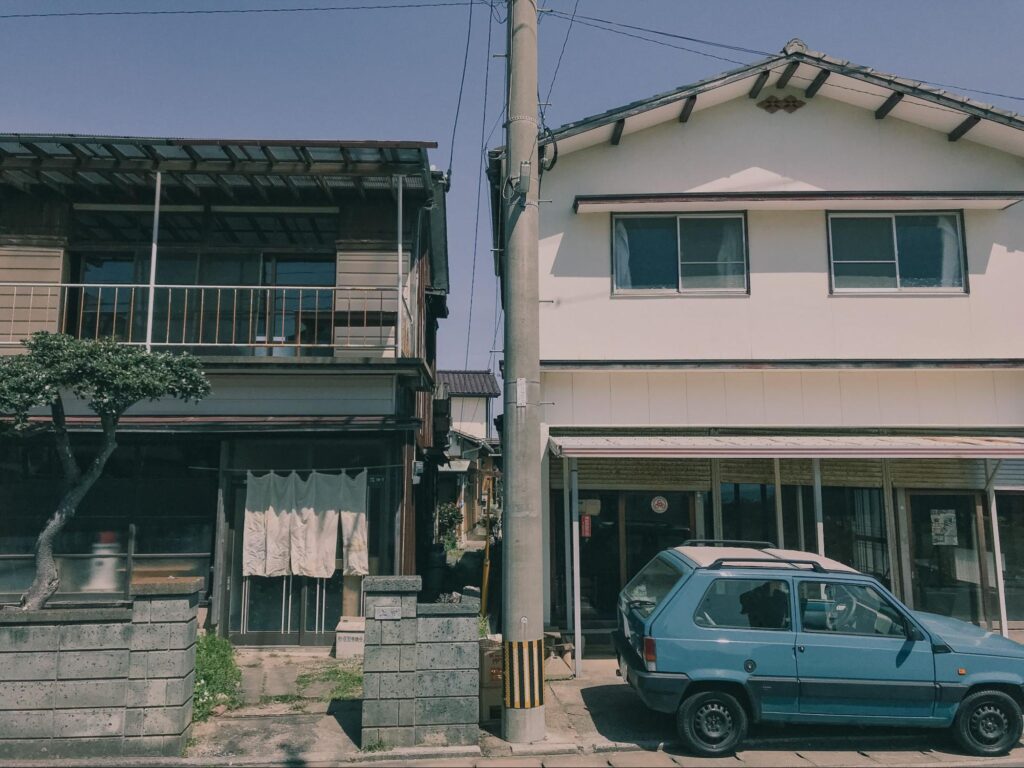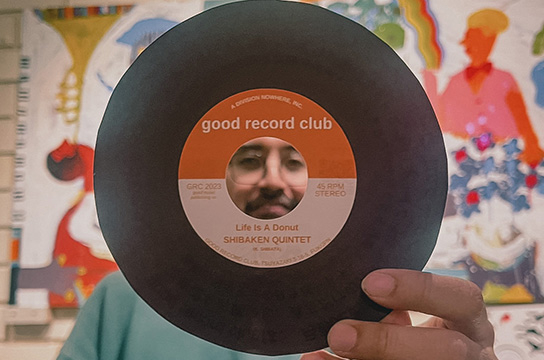About Mr. Shibata’s Career
Was Mr. Shibata exposed to music from a young age?
Shibata: I’m originally from a rural area in Fukuoka, and I started street dancing in middle school. Music, which is essential for dance, has always been a part of my life. When I moved to Tokyo for university, I became even more immersed in dance and music, mainly through activities in the university dance club, and I also began to dabble in DJing. During my college years, I had the opportunity to study abroad in Amsterdam, where I experienced European dance and club culture. Through these interactions, I feel I touched the essence of dance music, which connects people beyond different backgrounds through a love for music.
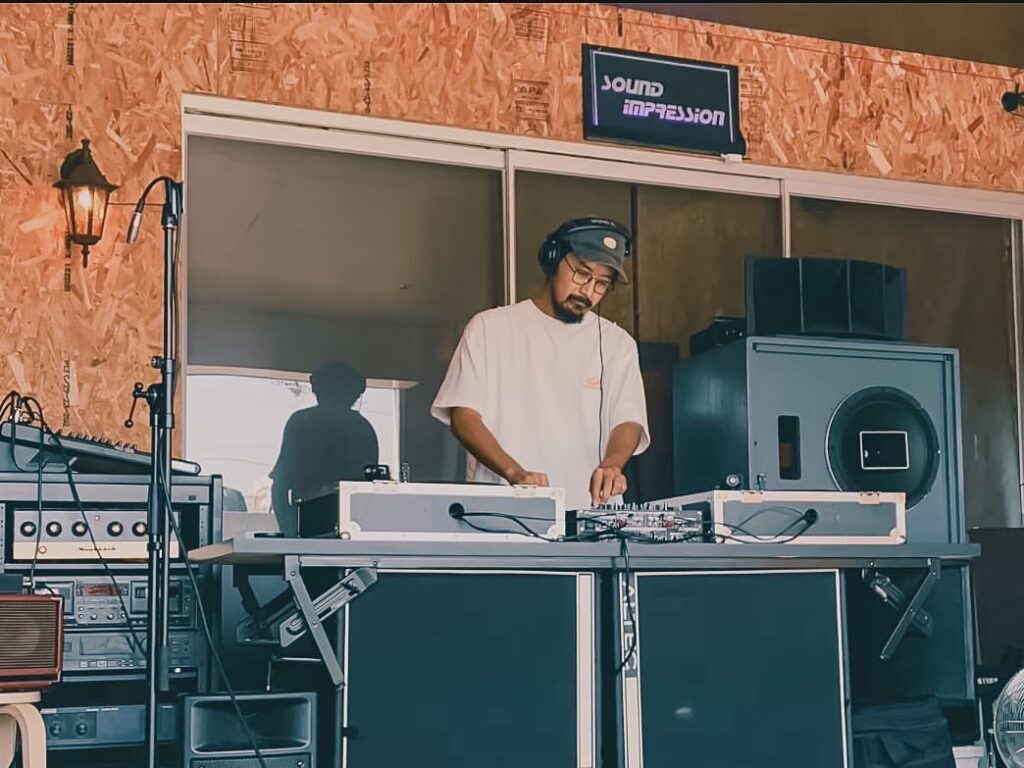
So you deepened your enjoyment and passion for music through dance. Can you tell us about your career after that?
Shibata: After graduating from university, I worked for about 9 years in international sales at an oil-related company. I had many opportunities to travel abroad and learned a lot in a global environment. However, when the company went bankrupt, I decided to change my career and made the decision to study abroad again. I went on to study business administration at a graduate school in Los Angeles, USA.
What was your experience like studying in America?
Shibata: Life in America had a significant impact on my way of living. My experience in Los Angeles provided an opportunity to be inspired by the West Coast’s unique free thinking and entrepreneurial spirit. I learned the importance of “Being Yourself” and began to think about creating unique value by combining my business experience with my passion for music.
Partly due to the impact of COVID-19, I chose to return to Japan immediately after graduation and start a business. This led to the beginning of the good record club service later on.

The Birth of good record club
Did you initially plan to create a record-related service?
Shibata: At first, I was considering a dance-related business, but after exploring several ideas, I decided to focus on music, particularly records, which can be considered the “origin” of music commercialization.
During my time studying in America, I noticed that while digital streaming services were booming, the appeal of analog records was being re-evaluated. Records had become so widespread that they were even sold at Walmart, the largest retail chain in the US. This inspired me to think about providing a service that would make records more accessible in Japan as well. Of course, there’s the aspect of the growing record market, but I also considered the social issues of people suffering mentally due to the loss of humanity in the digital age, as well as problems like privacy concerns and filter bubbles. I thought there was significant value in offering the charm of analog, which allows a return to the real world, especially music, which is rooted in the instinctive joy of humans. It’s also meaningful to establish one’s identity and recirculate culture by investing time and effort in long-lasting, quality items amidst a mass production and consumption society.
How did you come up with the specific idea for the service?
Shibata: In America, I saw the spread of a record subscription service called “Vinyl Me, Please (VMP)”, which distributes selected reissues monthly. This made me realize there was a need for “curation” by real people. However, unlike VMP, good record club takes a more personalized approach by conducting customer interviews and tailoring to individual preferences. I think VMP focuses on selling exclusive items, emphasizing the limited nature and physical appeal of records. Instead, I wanted to focus on the exciting “experience” of discovering records by chance. I aimed to create a service where the process of selection, along with the physical record, leaves a lasting memory and fosters a more organic relationship where you can feel the human touch behind it.
The background for this is our desire to provide customers with new musical experiences, help them refine their own sensibilities without relying on algorithms, and enable them to enjoy a richer musical life. Also, when interviewing people interested in records, we found that money and knowledge were barriers. I think it’s always been the same that records are expensive and hard to choose, but just as “record rental” was popular in the past, we thought that if there was a service that made it easier to enjoy records, it could spread to a new demographic.
That’s fascinating. So good record club is a service that combines all of Mr. Shibata’s experiences and learnings so far.
Shibata: That’s right. From encountering new values abroad and my original experiences of immersing myself in music, we created this service with the concept of “Life Sound” – encounters that color the journey of music in life.
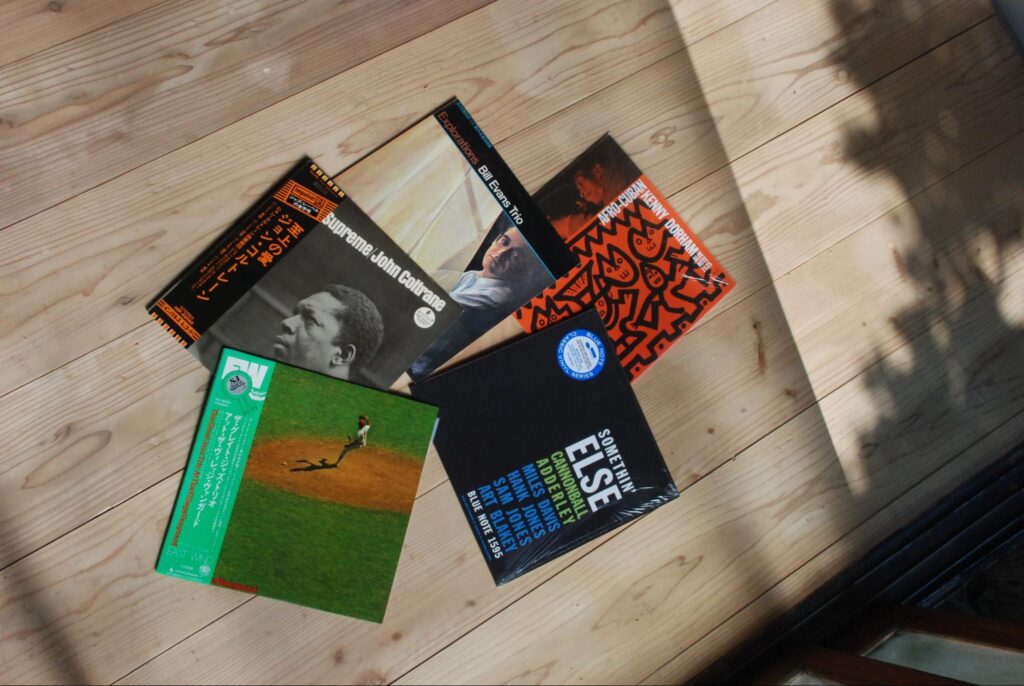
Features of good record club’s service
What are the unique features of good record club’s service?
Shibata: Our record subscription service sends recommended records to customers every month. For audio equipment subscriptions, customers can enjoy refurbished vintage equipment for a fixed monthly fee.
In the record subscription “Share Plan”, we send LP records tailored to the customer’s preferences every month, and favorite works can be purchased for an additional fee.
For other outright purchase plans, we send selected vintage LP records based on the desired quantity and budget.
The audio equipment subscription is a service for those who don’t yet have record playback equipment or want to upgrade. In addition to outright purchase, we offer a rent-to-own format where customers can try audio equipment at home and purchase if they like it. Specifically, we propose a set based on budget, installation location, brand, etc., allow customers to test the equipment for a fixed monthly fee, and offer the option to own the equipment at the end of the contract period.
Many beginners buy cheap new players for 10,000-20,000 yen, fail to appreciate the sound quality of records, and stop listening, or make mistakes buying cheap used items. We provide this service so that people can use well-made equipment from the start, try it in their home environment, and purchase with confidence.
Can you tell us about the audio lineup?
Shibata: I think good record club’s selection is positioned between high-end audio specialty stores with extensive expertise and used mass retailers like Hard Off with a wide range of products. The entry-level set “KOKE” combines active speakers that don’t require an amplifier, at a monthly fee of 5,000 yen (12-month plan), which I think is an accessible price range for beginners who want to start with records.
We also have “UME”, “TAKE”, and “MATSU” plans for audio sets depending on the budget. For example, the “UME” model set combines speakers like YAMAHA NS-10M and record players like Technics SL-1200, which are called “masterpieces”. These are proposed as sets to make it easier for customers to choose, but custom-made plans are also possible according to requests, such as combinations with equipment you already have.
What genres of records are available?
Shibata: The record lineup mainly consists of black music such as jazz and soul. We also have Japanese music and world music, but basically, the works are from the heyday of analog records (before the 1990s). This is because we believe that works from that era allow you to enjoy the unique atmosphere of records and the feeling of traveling further from the “present” to the “past” rather than new releases. We don’t handle much pop or rock.
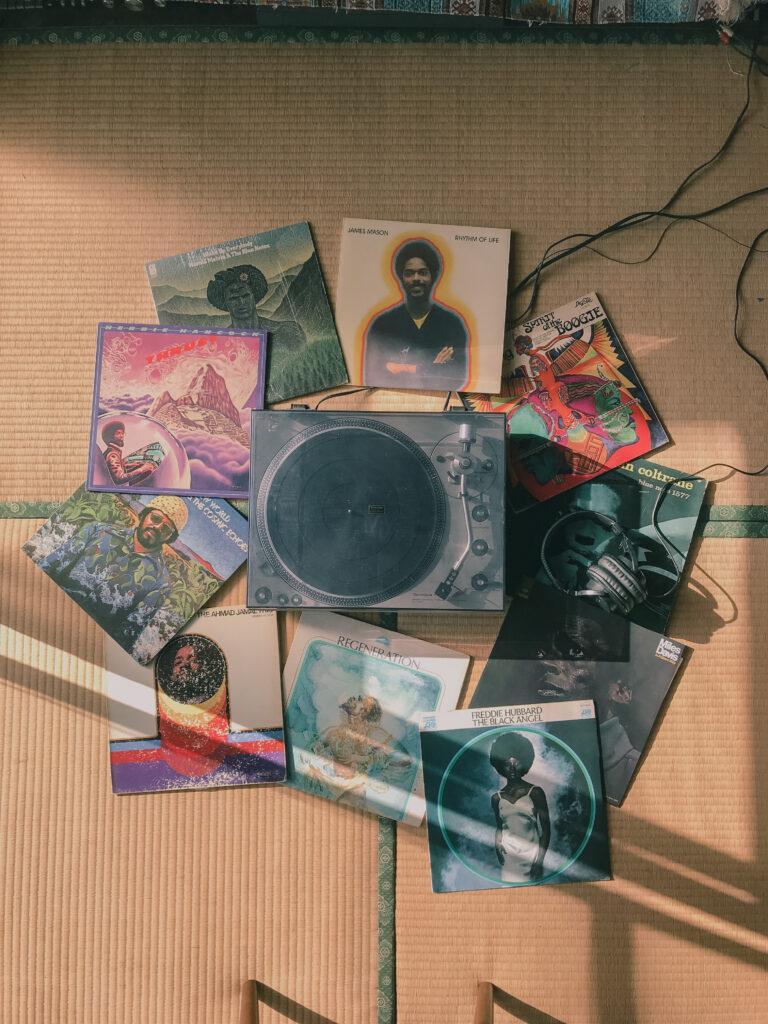
New proposals for record enthusiasts
Is good record club considering any new services?
Shibata: For records, we want to increase the range of selections by leveraging the expertise of other DJs and individual stores. If we can offer a variety of curators’ tastes, as if choosing from different stores at a record market, I think it will lead to a more fulfilling musical life, just like enjoying diverse food, clothing, and housing. For audio, we’re considering providing equipment sets for DJs and music production. Users can more easily start analog DJing or music production, and I hope they can immerse themselves in the experience of actively “playing with music” rather than just listening to it.
Through the provision of sets including turntables, mixers, and samplers, we believe customers will discover the tactile feel and joy of collecting unique to records, and music will become a deeper “play” in their lives.
So, good record club is proposing new ways to enjoy music, right?
Shibata: That’s right. We believe that through the emotions and connections with people that music creates, we can lead rich and profound lives. To that end, we want to maximize the appeal of analog records and have people enjoy them in a modern way.
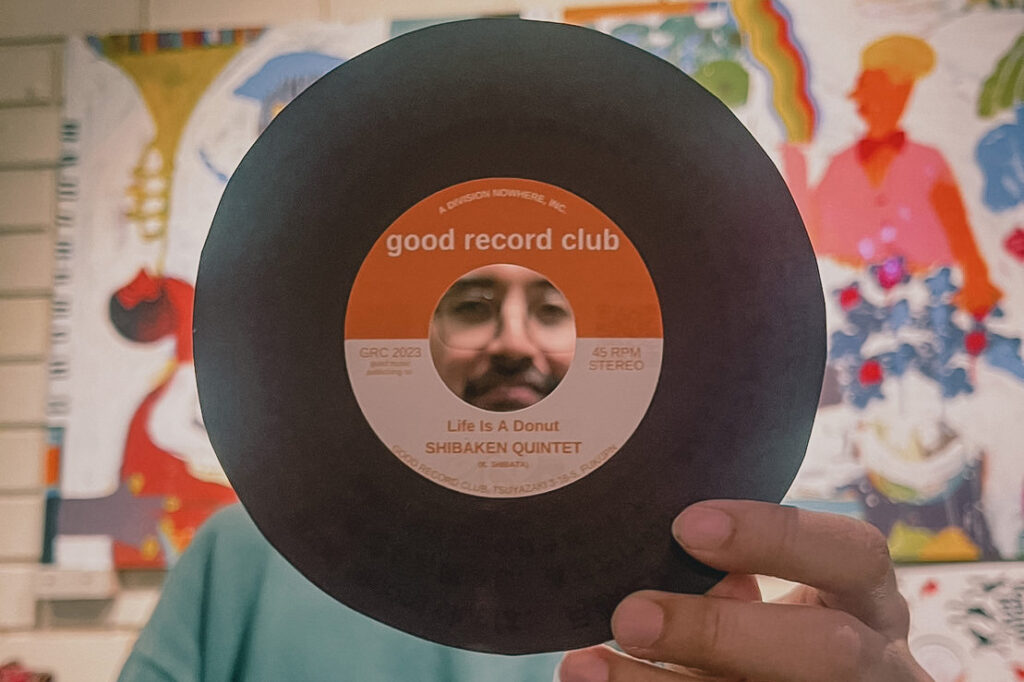
Mr. Shibata’s recommended records
Finally, please tell us your top three recommended records.
“Illusion Suite” / Stanley Cowell
Stanley Cowell is an American jazz pianist, and I think his melodies are incredibly beautiful. He’s also the founder of Strata-East Records, which represents spiritual jazz, and this one is released by ECM Records. The second track on Side A also includes percussion, and I’ve used it in dance showcases.
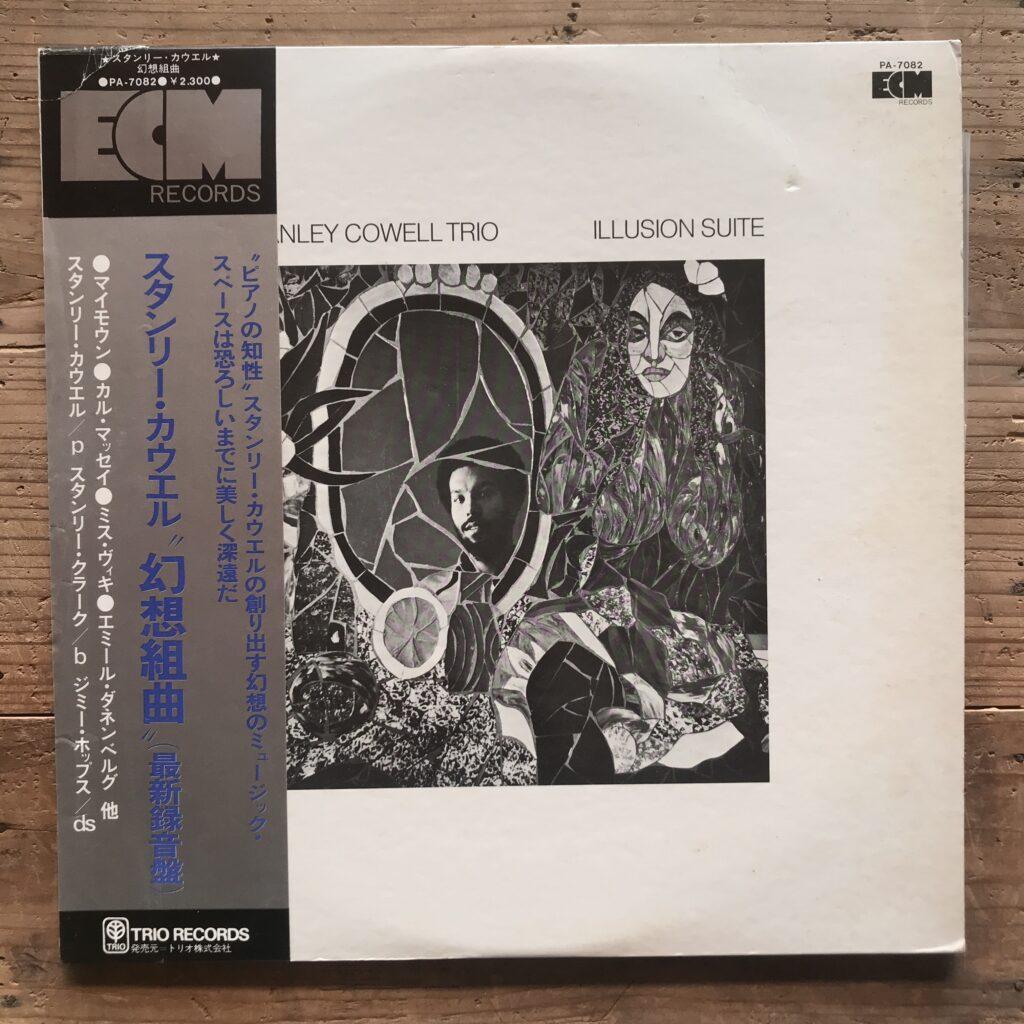
A DAY OF THE SUN / Masahiko Togashi & Isao Suzuki
I’m not sure if this can be called jazz, but it’s a duo work by two of Japan’s leading jazz drummers and bassists, a rare record made only by rhythm players. It has a very tribal feel, and it’s world music with Eastern influences. I was surprised that there are Japanese people who make such sounds.
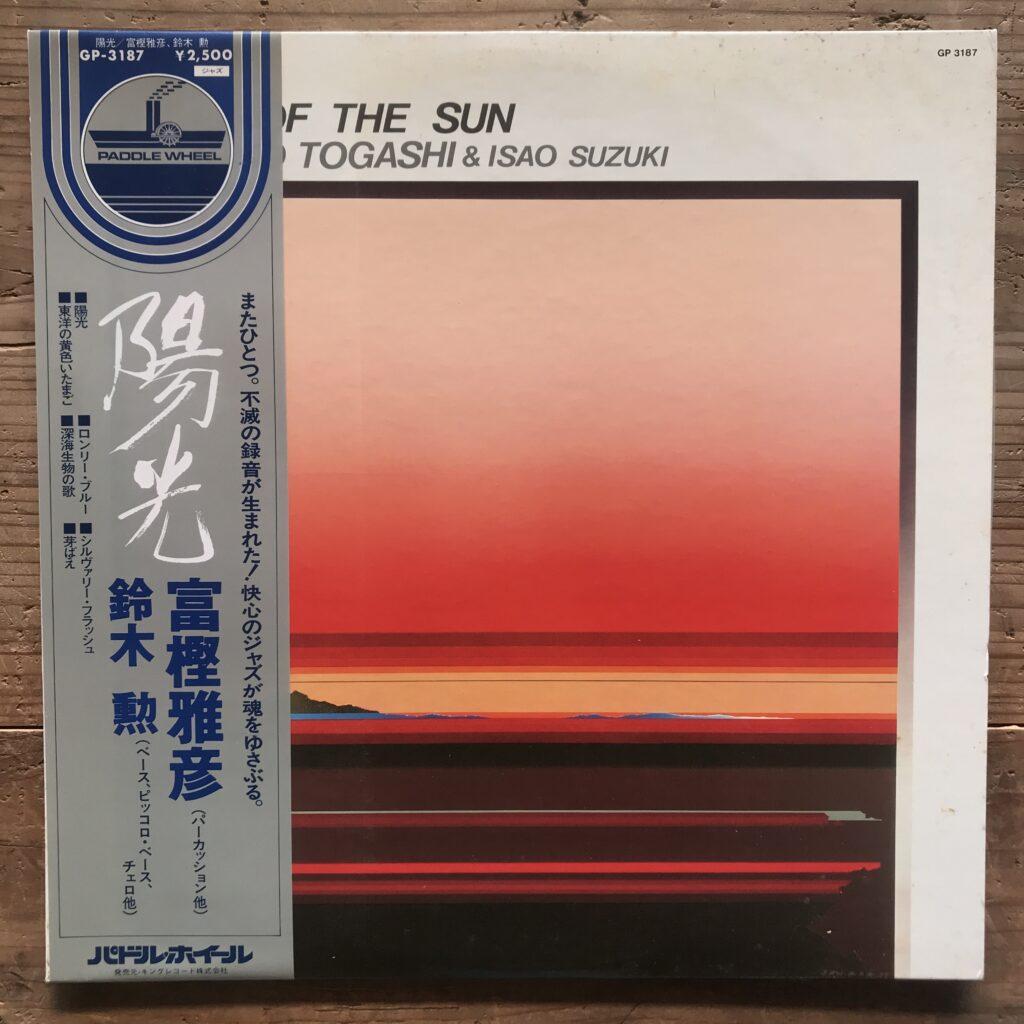
Dedication / Herbie Hancock Solo
This is a work from Herbie Hancock’s Japan-specific release during his visit to Japan. The song “Nobu” on Side B, created with synths, is not included in other albums, and its techno-like sound with beeps and noise is incredibly cool. It’s a song often played by Theo Parrish, and it would be amazing to hear it on the dance floor.
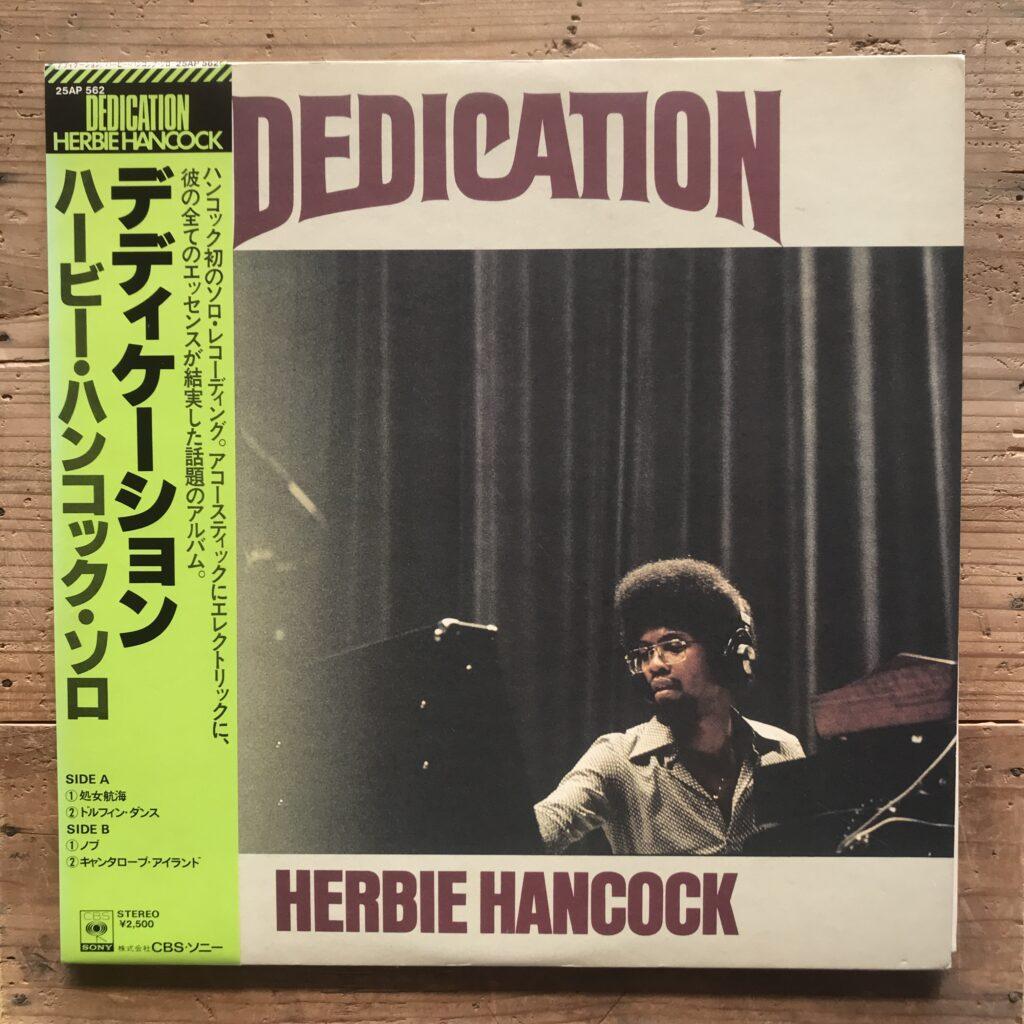
I tried the service after the interview!
After the interview, I signed up for the Share Plan (record subscription).
First, I had a conversation with Mr. Shibata via LINE and ordered “something with a solid groove,” “funk records,” “I’d like to try 80s disco too,” and “songs that Detroit techno DJs might play.”
And here are the records that arrived!!
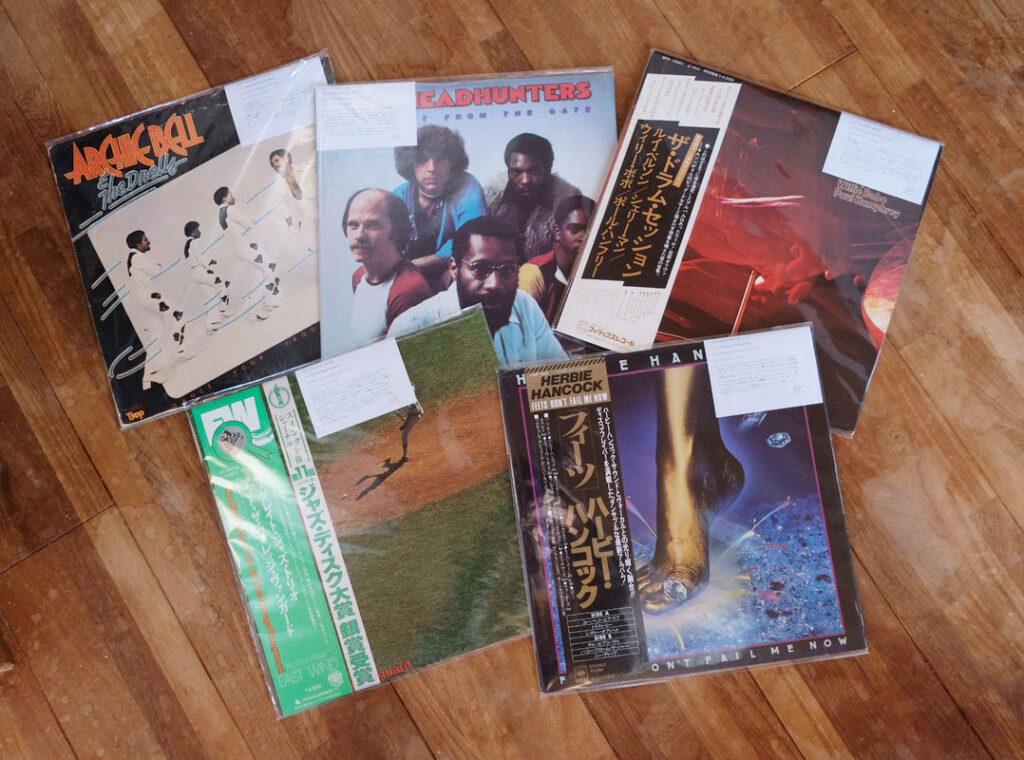
They sent me a variety of works including Archie Bell, funk from the Headhunters, jazz from The Great Jazz Trio and Paul Humphrey’s drum sessions, and Herbie Hancock’s disco work. Enjoying records that were suggested rather than chosen by myself was a very fresh experience, and I think I rediscovered the joy of records. While enjoying the records, I was particularly impressed by Herbie Hancock’s work, so I ordered more 80s disco for the next month and am looking forward to the arrival of the next set of records.
Behind the Turntable: Editor’s Afterthoughts
I found good record club to be an innovative service that suggests records based on individual music preferences, even without a relationship with a record store. It’s a unique service that allows those who don’t have time to visit record stores in their busy daily lives, or those who find it difficult to visit due to geographical constraints, to experience the unique aspect of record stores online.
In particular, I believe audio equipment is an important element in maximizing the appeal of records. I was impressed to learn that even if you don’t have a record player or audio equipment at all, you can start learning how to enjoy records and begin a new musical experience just by applying for the “Share Plan” and “Audio Set” simultaneously.
As someone who has always been passionate about music, I encourage you to take the opportunity to use good record club’s service and take a wonderful first step into the world of records.
good record club
https://goodrecordclub.com/
Store information
https://recoya.net/ja/stores/good-record-club-by-shibaken-records/
